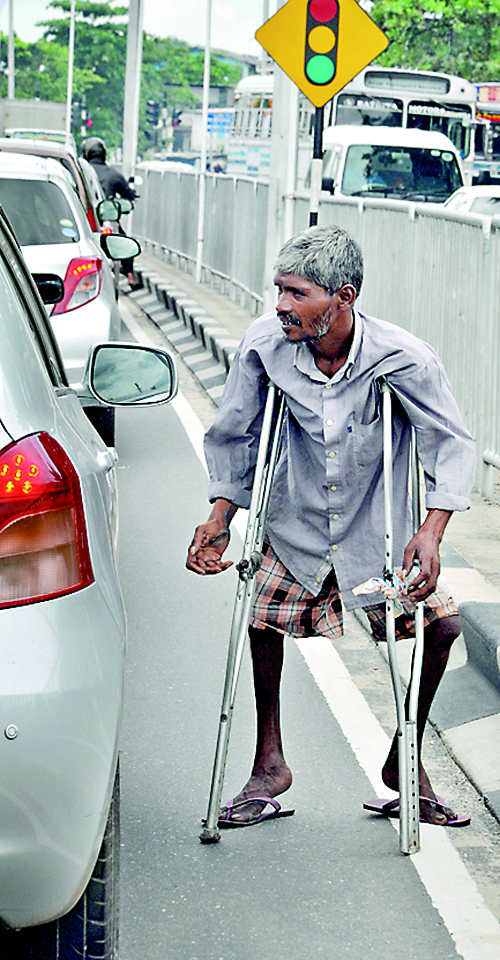News
National survey on beggars planned
A national survey of beggars is being planned as mendicants remain on the streets despite receiving government financial assistance and help through welfare centres.
The city’s beggars disappear when international conferences are hosted in Colombo or on the arrival of heads of state or VVIPs but afterwards the familiar figures reappear, hands outstretched at traffic lights and outside shopping centres.
The lack of an effective method to rehabilitate beggars in welfare centres is a problem plaguing government authorities.
Social Services Director Anusha Gokula Fernando said it was vital to have a national level program on the issue.
“Next year we are planning to do a survey on the beggar population in the country with the University of Jayewardenapura – that is essential; without the figures we can’t find a solutions for them,” she said.
She said a survey carried out in the Western Province in 2012 had found that some beggars earned about Rs. 6,000 a day.
“We have legal provisions to arrest beggars in the streets and hand them over to the Ridiyagama Detention Centre in Ambalantota,” she said.
The institution, which is run as a rehabilitation centre, is maintained by the Social Affairs Division of the Southern Provincial Council Welfare Ministry.
Its director, Shriya Danthanarayana, said currently the Ridiyagama centre was full, with 600 inmates. She said most people in the centre were mentally unfit to take care of themselves and had been in detention for a long time.
Charity Commissioner of the Colombo Municipal Council V.K.A. Anura said the council was supporting 11,000 low-income families and some of them continued begging while getting the allowances. Each of the families were paid sums varying from Rs. 400-1,500 a month, totalling Rs. 7.5 million of the council’s budget.
Colombo University’s Senior Professor of Sociology, Dr Siri Hettige, said the issue could be tackled easily if there was proper public policy to address their issues effectively.
“We should find a solution for them. The Government is spending around Rs. 10 billion every year to help low-income families through Samurdhi projects and other allowance schemes. How then are there beggars?” he asked.
A spokesperson for the Western Province Social Services Department said that many beggars were organised by mafia groups.

